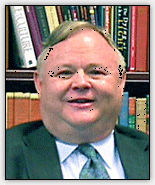A Review of Generous Orthodoxy by John Frame

Dont Stop Here

There is considerable overlap between McLaren’s concerns and mine. I too would like to see less doctrinal wrangling in the church and more love. [1] Like McLaren, I think it’s important to learn from traditions other than our own (43-67) [2] and in controversy to be both more winsome to those who disagree with us and harder on ourselves. I like McLaren’s way of putting it, that in theological dialogue we have the unfortunate tendency to compare our opponents’ worst with our best (136, 140). And I have argued, like McLaren (105-114), for a missional concept of the church: the Great Commission of Matt. 28:18-20 is the fundamental task of the church, so that everything the church does, including worship, ought to have an outward-facing aspect. [3] It has always seemed to me that the church (including its theology) tends to be healthiest when mission is in the forefront, least healthy when it is preoccupied with its own history and trying hard to prove itself right in controversies with other Christians.
Dont Stop Here
Comments
"Brian's book has its weaknesses, and Frame has his finger pointed at one
notable one: he doesn't provide a case, or even incentive, for defending
orthodoxy. I see no reason to defend Brian at every turn, and I would agree
here, but the point I'd also make is that this is not what Brian is writing
-- his is a bit of a confession of what he thinks is important for how to
orient his life and thinking.
The other thing: Brian's book has a rhetorical purpose that drives it -- to
stir up conversation."
I agree with these comments. Considering the author's purposes is an important component in assesing the book.
Hmm... i may be wrong here...
since the book's title is "Generous Orthodoxy", I wud be rather surprised if 'defending orthodoxy' is not at least one of the purposes of the book...